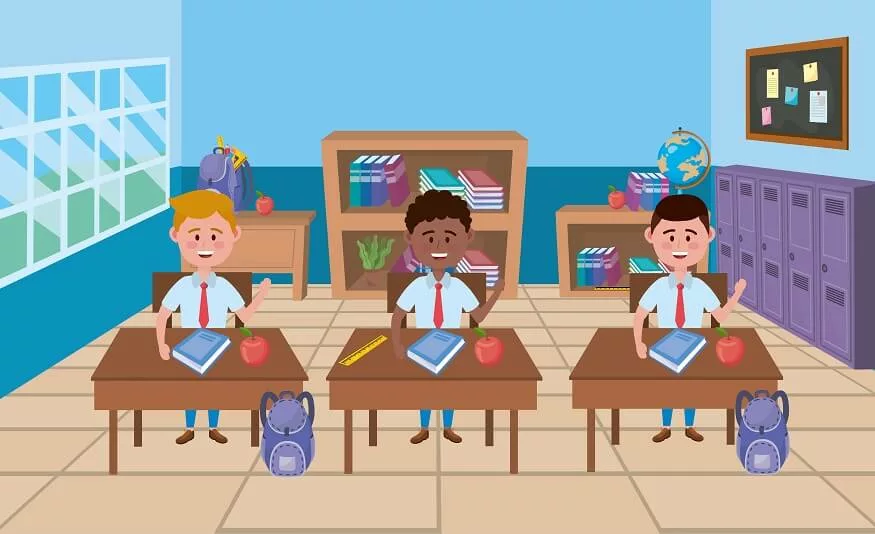English is the most prominent global language used for communication. As per estimates, nearly 2 billion people speak the English language, the highest, followed by Mandarin which is spoken by 1,138 million people and Hindi by 609 million people worldwide.
English is the official, administrative, or cultural language in more than 88 countries and territories in the world. English is one of the most prominent languages used for business, international relations, and other forms of communication across the world. As communication channels and technologies have evolved, the English language has also seen an evolution of sorts.
During ancient times, the English language was used in the form of scriptures to communicate and document ideas. These handwritten scriptures of ancient times are discovered frequently engraved on walls of caves across various parts of the world.
Technology has been widely established as the driver of this evolution in the way the English language evolved as a tool to read, write, and communicate ideas. During ancient times, civilizations developed a postal system to deliver handwritten messages via horse-riding carriers and pigeons. As communication channels evolved, calligraphy and ink-based handwritten text took prominence.
Also read : Use of Rhyming Words in the English Language
The invention of the printing press by Johannes Gutenberg in 1439 came as the first significant technological influence on the English language. The hand-inked calligraphy was seen as a sign of grandeur and royalty, while mass-printed books were looked at as a cheaper medium for the lower and middle class. In due course of time, the printed word gained prominence as the widely used medium for the spread and exchange of ideas across a wider audience. The printing press made it possible for ideas and scriptures to be documented and effectively stored for ready reference. Libraries began to emerge as the centres of intellectual engagement. Philosophers, writers, and academicians could now publish their ideas for a wider audience and reach.
The printing press for the first time established the need for a primary language for global exchange of ideas. This is where English overtook other languages such as Greek and Latin to emerge as the popular language for intellectual and artistic expression.
Global consumption also deemed the standardisation of vocabulary and grammar for widespread understanding, unambiguous interpretation, and consumption. This resulted in the standardisation of the English language structure, grammar and vocabulary. One of the downsides of this standardisation was the loss of vernacular flavour and unique usage made popular by the likes of Shakespeare who invented his style and usage of the English language.
Global adoption of the English language led to the exponential rise in the English-speaking population the world over. A command and fluency in the English language began to be seen as a sign of scholarship and literary supremacy. Scientists, artists, and authors across the world were now able to find a much larger audience for their work. Their avenues for global collaboration increased significantly. Even local language works and scriptures were translated into the English language for wider consumption.
Also read : Role of Textbook in Language Teaching and Learning
The digital revolution introduced to us new and faster ways of communicating with each other. The introduction of emails, followed by the social media revolution, the SMS era, followed by the WhatsApp generation of communication has brought widespread changes in the way English is used for communication.
A new vocabulary is emerging in today’s digital world. Expressions such as selfie,’ ‘images,’ ‘unfriend’ and ‘LOL’ (laugh out loud), ‘OMG’ (Oh my God), ‘TTYL’ (talk to you later), are popularly used words for instant communication in the digital world. The introduction of the front camera in modern-day smartphones gave birth to the concept of a ‘selfie’. Facebook, the pioneering social media platform gave rise to a whole new lingo where the social connect was initiated using a ‘friend request’ and the same could be terminated by ‘unfriending’ an individual you don’t wish to continue connecting with.
The world of 140 characters introduced by Twitter stretched our creative imagination of compressing as many ideas as possible within the tight 140-character limit. Short-hand was a very niche form of English used in specific professions such as journalism.
However, the Twitter era took it to a whole new level. The instant messaging era with dwindling attention spans introduced a whole new form of English parlance. ‘By the way’ became btw, ‘Good Morning’ became Gm, and Goodnight became Gn. Talk to you later ended up just being TTYL. It doesn’t stop with cutting short the words. The social messaging era also led to the invention of new expressions suitable for the modern era. Expressions such as BAE (Before Anyone Else), BFF (Best Friend Forever), LOL (Laughing Out Loud), and even ROFL (Rolling on the Floor Laughing Out Loud) stretched the limits of our short-hand expression.
Also read : Soft skills for students: what they are and how to develop them
The invention of emojis has added a whole new dimension to expressions. Today’s prominent conversation compresses an entire expression into one facial emoji. Be it laughter, anger, shock, surprise, celebrations, or kudos, there is a single emoji that succinctly communicates all and any emotion that you might wish to communicate.
There are schools of thought that believe that technological evolution has led to the degradation of language, English included. Technological innovations in terms of spellcheck, autocorrect, and even AI-based sentence correction, and sentence suggestions, do not leave much to the composer’s imagination and articulation.
Generative AI such as ChatGPT and Bard have made content creation even more mechanistic. The invention of word processing software such as Microsoft Word with its advanced spellcheck, grammar check, even tonality and AI-based recommendation features has inhibited the development of language skills amongst the youth of today.
The art of reading is being quickly taken over by text-to-audio software applications such as Audible. The art of writing has already been taken over by the likes of ChatGPT and Bard. Handwritten text is extremely rare with easy-access keyboards available with autocorrect and sentence completion software. All of this technological advancement while making communication more convenient is not helping the cause of linguistic development and creativity in articulation.
Also read : Personalised Learning Techniques For Students
At EuroSchool, we take utmost care to engage students in the purest form of language usage, English and native, to keep the basics of language alive in our students. Our students frequently use pen and paper to jot down their original ideas, and compositions without the dependence on autocorrect, spellcheck, and sentence completion software. Language is not just a means of reading, writing and communication, but is an integral source of new ideas. A continued command of the language is essential and we at EuroSchool take great care to ensure the same in our students.
Conclusion
At EuroSchool, we believe and emphasise the fact that sustainable education is the foundation for creating an informed, responsible, and proactive citizen. It empowers the next generation with the necessary tools to spearhead a sustainable, equitable, and resilient society and with the right approach it can go a long way in shaping their attitudes and behaviours towards building a sustainable future.











